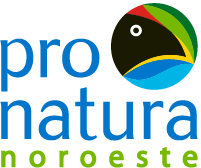Restoring the Colorado River Delta and surrounding areas to create a biological corridor between Mexico and the United States, let the community connect with nature while reforesting, and give diverse species a place of refuge and feeding, is part of the objectives of the Reforest San Luis project which is being implemented in the Miguel Alemán Restoration Site in the Mexicali Valley and in the schools and communities in the area and in San Luis Río Colorado, Sonora.
In 2019, 12,250 native trees were planted as part of reforestation days with support from 1,605 volunteers from the region, the binational cooperation between the governments of Mexico and the United States, and Pronatura Noroeste restoration brigade.
In addition, “Restoration Initiative of the Colorado River Delta” and “For a Sea Free of Plastics” workshops were given to 1,824 students and teachers from 64 elementary, middle, and high school education programs, and to residents from the communities in the region, to raise awareness of the project, invite them to the restoration days in Miguel Alemán, reforest their schoolyards or public parks, and share information about the problems plastics cause in the sea and how to minimize them.
At the end of November, during the closing event of the reforestation activities corresponding to Stage V of the project, Miguel Vargas, Director of the Water and Wetland Conservation Program, gave thanks for the efforts of the brigade and said, “Your work is very important, we are helping to recharge the aquifer and reforest the area with native vegetation, which creates an oasis in a desert, a type of corridor not only for the benefit of nature, but also for the communities of the region because it will improve our air and climate.”
Restoring the Colorado River Delta and surrounding areas to create a biological corridor between Mexico and the United States, let the community connect with nature while reforesting, and give diverse species a place of refuge and feeding, is part of the objectives of the Reforest San Luis project which is being implemented in the Miguel Alemán Restoration Site in the Mexicali Valley and in the schools and communities in the area and in San Luis Río Colorado, Sonora.
In 2019, 12,250 native trees were planted as part of reforestation days with support from 1,605 volunteers from the region, the binational cooperation between the governments of Mexico and the United States, and Pronatura Noroeste restoration brigade.
In addition, “Restoration Initiative of the Colorado River Delta” and “For a Sea Free of Plastics” workshops were given to 1,824 students and teachers from 64 elementary, middle, and high school education programs, and to residents from the communities in the region, to raise awareness of the project, invite them to the restoration days in Miguel Alemán, reforest their schoolyards or public parks, and share information about the problems plastics cause in the sea and how to minimize them.
At the end of November, during the closing event of the reforestation activities corresponding to Stage V of the project, Miguel Vargas, Director of the Water and Wetland Conservation Program, gave thanks for the efforts of the brigade and said, “Your work is very important, we are helping to recharge the aquifer and reforest the area with native vegetation, which creates an oasis in a desert, a type of corridor not only for the benefit of nature, but also for the communities of the region because it will improve our air and climate.”
For his part, Alberto Ruiz, Restoration Coordinator said, “Sometimes, we were impressed. What we reforested in the Miguel Alemán Restoration Site are 35 hectares, equivalent to 35 professional soccer fields, 12,250 trees were planted, but we have to look further to understand the great effort that takes. Preparing trees in the nursery, installing more than 3 kilometers of pipe, and cutting more than 3 kilometers of steel mesh to develop protection for the trees is the result of a huge effort. Most importantly, thanks to the more than 30 people who participated in the brigade, their work and dedication is present here and I am very proud of each and every one of you.”
During Stage V, the installation of the drip irrigation system in each planted tree was overseen by Heriberto Arcos, Field Technician, who has worked with the project since 2011 and said, “Installing it was an achievement and something extraordinary, because it was the first time I did a job this big and it was in record time. I had to install everything from scratch, from the first tube to the last, and from the first hose to the last, and from the first drop to the last.”
Currently the Miguel Alemán Restoration site has 135.5 restored hectares and a forest of poplars and willows that gives visitors the opportunity to enjoy the landscape and observe the flora and fauna native to the region.
Moisés Arano, Site Operation Manager said: “What motivates us is leaving a legacy for our families, our children, and our grandchildren, who after a while will come to enjoy all we have done. I am very excited to see the trees grow, and to see fauna return to the site once again. There are already more birds, coyotes, and reptiles not seen before.”
The reforestation days will continue in 2020, thanks to the binational government support, foundations, and volunteers who join forces to make this project a reality.
Follow us on Facebook: Reforesta San Luis
Learn more about the production of native trees.












